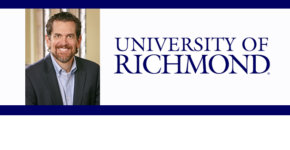 Businesses that shift focus from transactions to relationships with stakeholders could be better off.
Businesses that shift focus from transactions to relationships with stakeholders could be better off.
Doug Bosse, professor of business at the University of Richmond, explores why.
Doug Bosse is Professor of Strategic Management and the David Meade White Jr. Chair in Business at the Robins School of Business at University of Richmond. Doug is also Chair of the Management Department. He received his Ph.D. from Fisher College of Business at The Ohio State University. Doug’s scholarly work appears in Academy of Management Review, Strategic Management Journal, Journal of Management Studies, Journal of Business Venturing, Business Horizons, and Technovation, among others. He is a two-time winner of The International Association for Business and Society’s Best Paper Published Award and on the editorial board of Long Range Planning. Doug is a past Chair and founding member of the Stakeholder Strategy Interest Group at the Strategic Management Society. He is a University Distinguished Educator and served as President of Richmond’s Faculty Senate. His research examines how firms manage key stakeholder relationships to improve firm-level performance. Prior to joining academe, Doug gained over ten years of corporate strategy consulting experience in a wide variety of industries. He often facilitates strategic planning and leadership alignment activities for executive teams and boards.
Shareholders and Stakeholders
It’s both a challenging and exciting time to be a CEO.
On top of the ordinary challenges associated with leading an organization, there has been a shift from a historical mindset that the purpose of a firm is to maximize shareholder value to instead creating value for all stakeholders.
The term ‘stakeholders’ refers to employees, customers, suppliers, communities, and shareholders.
My research examines stakeholder theory, which is broadly focused on understanding and explaining how organizations form and nurture relationships with a collection of stakeholders. Stakeholder theory focuses on relationships; while the dominant economic approaches to strategy research are primarily focused on transactions.
Why do you think employees choose one business over another? Why do customers? In a free society with open competition for stakeholders of all types, there are no fixed rules that always work for attracting, enrolling, and retaining the stakeholders an organization needs to execute its plan. Instead, the best course of action in practical situations is always conditional.
It’s common to think stakeholders primarily value financial metrics such as prices, wages, discounts, premiums, taxes, and dividends, but stakeholders enter and leave relationships with firms based on other considerations too — for example, the extent to which they are included in the process of making decisions that affect them. Stakeholders want companies not only to ask for their opinions, but also to seriously consider them.
Another set of powerful expectations, collectively called interactional justice, are all about the manner in which a firm treats the stakeholder. Specifically, most people place a high value on being treated with courtesy, dignity, and respect.
The expectations for these different forms of value play a big role in the stakeholder’s behaviors.

Comments
One response to “Doug Bosse, University of Richmond – Shareholders and Stakeholders”